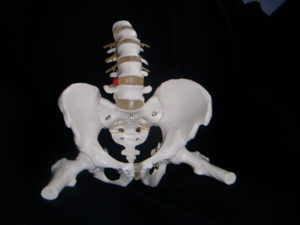In seating assessment and prescription part 1 we explored the goals of seating, having assessed the physiological, physical and social aspects of the seating it is time to assess the person who will sit in the seat.
In order for someone to be functional in their environment they need to have the correct amount of support in the right places, too much and they are restricted by the seat, too little and they are restricted by their body traying to support itself.
When carrying out a seating assessment for a client, the starting point should be the pelvis as this is the foundation of the sitting position. The assessing therapist will look at the bony parts of the pelvis and will use their hands to feel where they are in relation to the client’s body and the supporting surface.
For sitting to be b alanced (and considered ‘normal) the pelvis needs to be in a neutral position and the weight taken evenly through both sit bones. The head and the spine should be in the centre above the pelvis. Because of the effects of gravity, this position is very difficult for most people to maintain. Its achievability is also dependent on the person having neuromuscular and muscular systems that work effectively.
alanced (and considered ‘normal) the pelvis needs to be in a neutral position and the weight taken evenly through both sit bones. The head and the spine should be in the centre above the pelvis. Because of the effects of gravity, this position is very difficult for most people to maintain. Its achievability is also dependent on the person having neuromuscular and muscular systems that work effectively.
If someone presents with an abnormal sitting posture the therapist must ascertain whether it is fixed or flexible. A fixed posture cannot be altered and must be accommodated by the seating; this will slow down the rate of deterioration of the posture and counteract the effects of gravity. A flexible posture can be altered, and the seat can be used to correct elements of it ensuring the person remains comfortable. Posture correction can lead to improved functional ability and can prevent or slow down deterioration in function and posture.
an abnormal sitting posture the therapist must ascertain whether it is fixed or flexible. A fixed posture cannot be altered and must be accommodated by the seating; this will slow down the rate of deterioration of the posture and counteract the effects of gravity. A flexible posture can be altered, and the seat can be used to correct elements of it ensuring the person remains comfortable. Posture correction can lead to improved functional ability and can prevent or slow down deterioration in function and posture.
There are many reasons for abnormal postures of the pelvis. We will explore some of the more common ones in future Seating Blog posts.
If you would like to read more about the therapy offered by Positive Positioning have a look at the Therapy section on our website https://www.positivepositioning.co.uk/therapy



